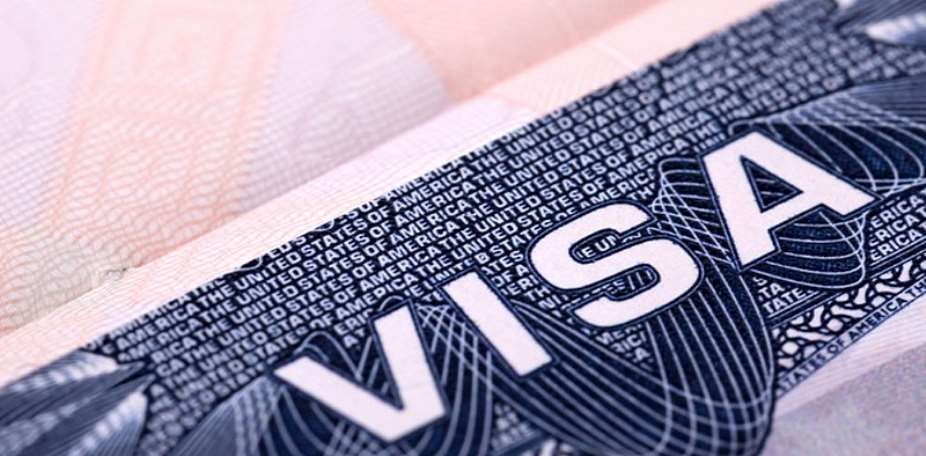Introduction
In this article, we will discuss the meaning of a nonimmigrant waiver, the basis for a nonimmigrant waiver, and the conditions for recommending a nonimmigrant waiver.
What is a nonimmigrant waiver?
A waiver is akin to a “pardon”. Depending on your ineligibility, you may not be allowed to enter the U.S. until the passage of a specified time. You may even be barred from entering the U.S. forever. However, the law may waive or pardon your ban by admitting you into the U.S. for a specific purpose and duration.
Several reasons may prevent you from entering the U.S. You may have previously committed a crime, or used fraud in an application for a visa, or stayed 6 months or more beyond your period of authorised stay. These are some scenarios that may render you ineligible to receive a visa. Whiles some ineligibilities are permanent (meaning forever), others are time-barred, meaning you may be allowed back into the U.S. after the passage of a specified time.
For example, if you left the U.S. after having stayed beyond your authorised stay for one year or more, you will be barred from returning to the U.S. for 10 years. However, within the period of the 10 year bar, you may apply for a waiver to be allowed to return to the U.S. This will not mean that your 10 year bar would have been removed. You are only being granted temporary relief. This is the meaning of a nonimmigrant waiver.
What is the legal authority for recommending a waiver?
The legal authority for making a recommendation for a nonimmigrant waiver is INA 212(d)(3)(A). This law vests the CO with discretion to recommend a waiver. If the CO determines that you are entitled to seek a waiver relief and that you are otherwise qualified for a visa, and that your presence will not be contrary to U.S. interests, the CO may recommend a waiver to the Department of Homeland Security (DHS) for approval. The recommendation is sent to an office called the Admissibility Review Office (ARO) which is a unit within Customs and Border Patrol (CBP). The Visa Office at the Department of State may also make a recommendation but this should not be your preferred option.
What are the conditions for recommending a waiver?
- You must not be ineligible under INA 214(b). Most nonimmigrant visas require that you possess nonimmigrant intent at the time of your visa application. If you fail to do so, your visa will be refused. If you made an application for a B visa, and the CO determined that you did not have sufficient ties to your home country, your visa will be refused under INA 214(b) and there will be no basis for the CO to recommend a waiver.
- You must show that you otherwise qualify for the nonimmigrant visa you are seeking. You must show that were it not for the ground of ineligibility for which you were seeking the waiver, you would otherwise qualify for the visa on all the other grounds.
- The CO will not recommend a waiver if you are ineligible on certain grounds. The law provides no waivers for these types of ineligibilities. They include security related grounds like espionage, sabotage, or intent to overthrow the U.S. government. Others are intent to commit an unlawful act in the U.S. or to violate certain export control laws. If you are ineligible under any of these grounds, the CO will not recommend a waiver.
Conclusion
In this article, we considered the meaning of a waiver, the legal basis for a waiver and the conditions for recommending a waiver. In our next article, we will conclude by discussing factors the CO may consider in recommending a waiver, the procedure for seeking a waiver, processing times, format, fees, forum, etc.
By Emmanuel Opoku Acheampong
Disclaimer: This article only provides general information and guidance on U.S. immigration law. The specific facts that apply to your matter may make the outcome different than would be anticipated by you. The writer will not accept any liability for any claims or inconvenience as a result of the use of this information. The writer is a private legal practitioner in Ghana. He advises on Ghana, U.S., UK, and Schengen immigration law. He works for Acheampong & Associates, a law firm in Accra, Ghana. He may be contacted on info@ acheampongassociatescom .





 Burkina Faso expels French diplomats for 'subversive activities'
Burkina Faso expels French diplomats for 'subversive activities'
 GOIL reduces petrol price by 29 pesewas, sells GHC14.70 per litre
GOIL reduces petrol price by 29 pesewas, sells GHC14.70 per litre
 The disrespect towards security is terrible; we can do better — Atik Mohammed co...
The disrespect towards security is terrible; we can do better — Atik Mohammed co...
 Starlink to cease connection in Ghana, other “unavailable” countries on April 30...
Starlink to cease connection in Ghana, other “unavailable” countries on April 30...
 MMCEs, DCEs and Regional Ministers must be elected to reduce political interfere...
MMCEs, DCEs and Regional Ministers must be elected to reduce political interfere...
 National Cathedral: ‘Nonsense; you take taxes from broke Ghanaians to dig a clum...
National Cathedral: ‘Nonsense; you take taxes from broke Ghanaians to dig a clum...
 April 18: Cedi sells at GHS13.59 to $1, GHS13.01 on BoG interbank
April 18: Cedi sells at GHS13.59 to $1, GHS13.01 on BoG interbank
 We must harness the collective power and ingenuity of female leaders to propel o...
We must harness the collective power and ingenuity of female leaders to propel o...
 Saglemi Housing Project will not be left to rot – Kojo Oppong Nkrumah
Saglemi Housing Project will not be left to rot – Kojo Oppong Nkrumah
 Asantehene commends Matthew Opoku Prempeh for conceiving GENSER Kumasi Pipeline ...
Asantehene commends Matthew Opoku Prempeh for conceiving GENSER Kumasi Pipeline ...
